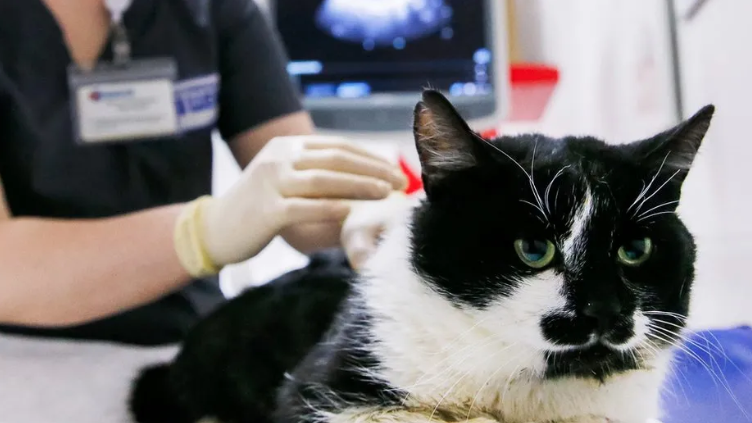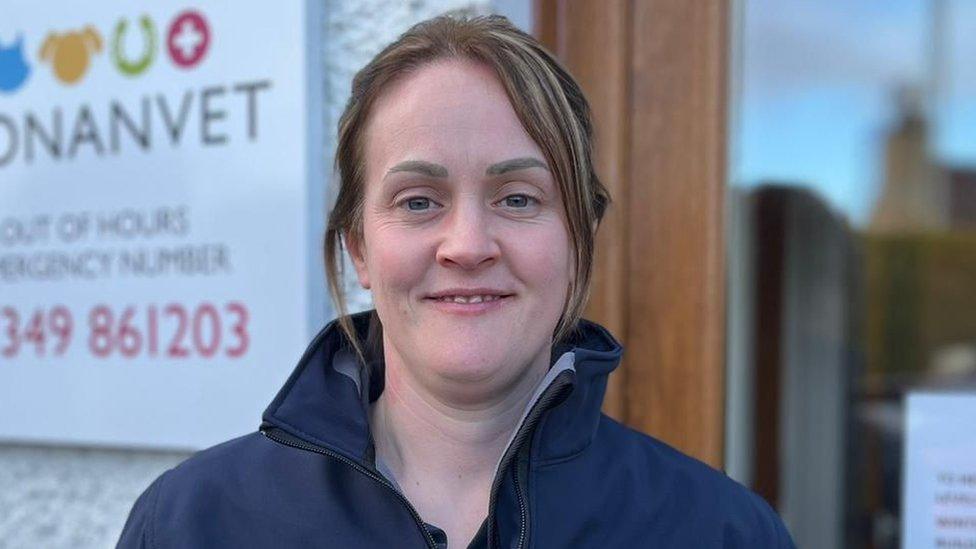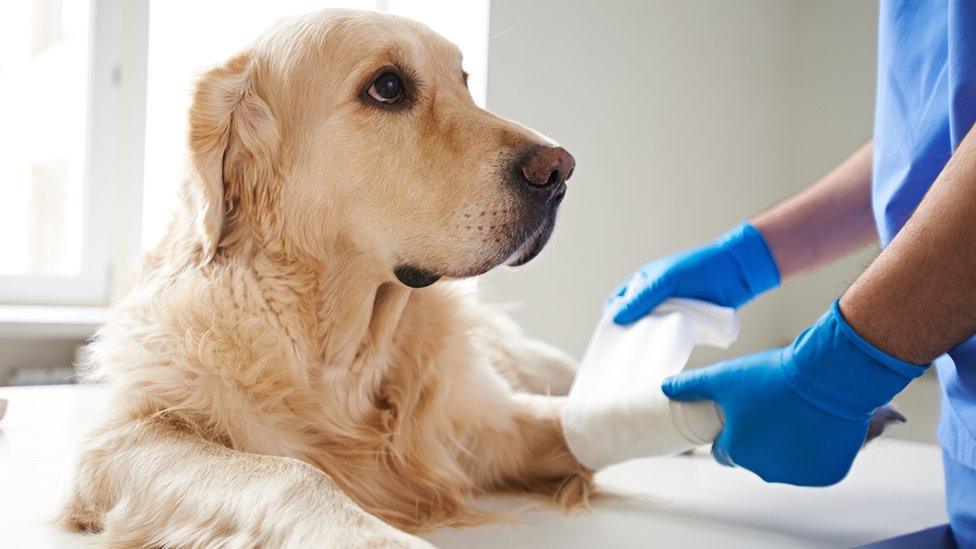Vets refusing new pets amid staffing crisis

The charity said it was not taking on new registrations after 8 April
- Published
The Wolverhampton branch of a national pet charity has been forced to stop taking on new cases because of a "severe shortage" of veterinary staff.
The PDSA pet hospital said the difficult decision had been prompted by an industry-wide recruitment gap and the branch wanted to prioritise pets currently registered.
The charity said it was doing all it could to resolve the problem at its site on Tuxford Close.
The Food Standards Agency (FSA) - which relies on vets to monitor animal welfare - has called on the government address the problem while a Department for Environment, Food and Rural Affairs (Defra) committee has discussed it.
Vets are "the backbone" in protecting animal health and welfare and trade as well as assuring food safety standards in the UK, the FSA said, and the shortage was putting industry standards at risk.
'Precarious situation'
The body said the entire profession faced resourcing problems and called for a joined-up approach across government and the veterinary profession to end the current "precarious situation".
Dr Elizabeth Mullineaux, junior vice president of the British Veterinary Association (BVA), cited a combination of the pandemic, soaring pet ownership, the fallout from Brexit, and an increase in vets leaving the profession, as factors in the shortage.
"Overseas graduates have been critical in meeting the shortfall, however recent changes to the skilled worker visa rules requiring veterinary surgeons coming to the UK to meet a salary threshold is likely to exacerbate the situation further," she said.
"The British Veterinary Association is pressing the UK government to reconsider the rules in relation to vets, who not only play a critical role in the welfare of the nation’s pets, but are essential to disease control, UK food security and international trade."
A spokesperson for the PDSA charity said it had been unable to take on new clients since 8 April, but the decision would be temporary.
“This decision has not been made lightly and is a result of the ongoing vet recruitment crisis that is affecting the vet sector as a whole, " area veterinary manager, Florine Morrison, said.
"Our priority is to ensure we can continue to provide treatment and emergency care to the pet patients currently registered with us, while also protecting the wellbeing of our staff.
"However, we’re working hard to try and resolve the staff shortage issues as quickly as possible so that we can return to normal services."
Analysis: Dr David Gregory-Kumar, BBC Midlands Today science and environment correspondent
For the last few years there simply have not been enough vets. It’s not just a problem here in the UK, all over the globe countries face shortages.
But there are very specific problems here at home that have made things much worse.
According to the Royal College of Veterinary Surgeons (RCVS), as the BVA says above, these issues are Brexit, the impact of the Covid pandemic and more and more of us getting pets which has increased demand.
The impact is felt everywhere, from increasing prices for treatments to not enough vets to carry out essential work on our farms.
Although veterinary medicine remains a popular choice for many students, we are seeing a shortfall in qualified personnel overall.
In the past, we would have seen European vets come here to work and close that gap but Brexit has drastically reduced the numbers coming from Europe to work in the UK - down by 68%, according to the RCVS, from 1132 in 2019 to 364 in 2021.
Meanwhile the number of people leaving the profession citing poor pay and poor work-life balance has reached “unsustainable” problems, also according to the RCVS.
People are trying to tackle this problem - by relaxing language testing requirements for overseas vets and increasing training among other measures.
But the BVA says there is no “silver bullet” to fix this. Instead a whole host of long-term solutions are needed to a global problem significantly affected in this country by Brexit.
Follow BBC West Midlands on Facebook, external, X, external and Instagram, external. Send your story ideas to: newsonline.westmidlands@bbc.co.uk, external
Related topics
- Published9 March 2023

- Published12 March 2024
